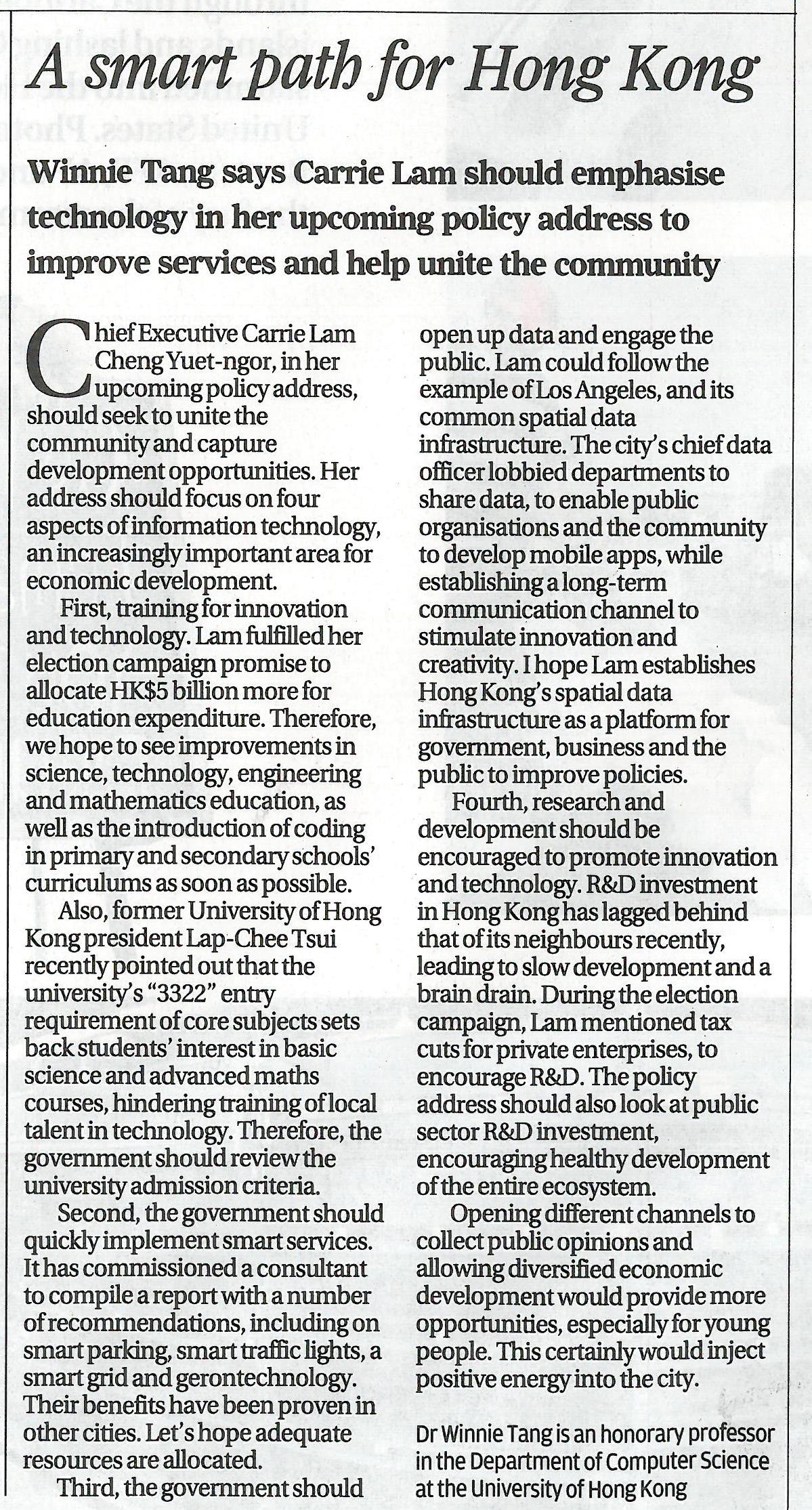網上版請按此

A smart path for Hong Kong
Chief Executive Carrie Lam Cheng Yuet-ngor, in her upcoming policy address, should seek to unite the community and capture development opportunities. Her address should focus on four aspects of information technology, an increasingly important area for economic development.
First, training for innovation and technology. Lam fulfilled her election campaign promise to allocate HK$5 billion more for education expenditure. Therefore, we hope to see improvements in science, technology, engineering and mathematics education, as well as the introduction of coding in primary and secondary schools' curriculums as soon as possible.
Also, former University of Hong Kong president Lap-Chee Tsui recently pointed out that the university's "3322" entry requirement of the core subjects sets back students' interest in basic science and advanced math courses, hindering training of local talent in technology. Therefore, the government should review the university admission criteria.
Second, the government should quickly implement smart services. It has commissioned a consultant to compile a report with a number of recommendations, including smart parking, smart traffic lights, digital travel, the smart grid and gerontechnology. Their benefits have been proven in other cities. Let's hope the policy address allocates adequate resources for this.
Third, the government should open up data and engage the public. Lam could follow the example of Los Angeles, and its common spatial data infrastructure. The city's chief data officer lobbied different departments to share data, to enable public organisations and the community to develop mobile apps, while establishing a long-term communication channel between the public and government, stimulating innovation and creativity. I hope Lam establishes Hong Kong's spatial data infrastructure as a platform for government, business and the public to improve policies.
Fourth, research and development should be encouraged to promote innovation and technology. R&D investment in Hong Kong has lagged behind that of its neighbours recently, leading to slow development and a brain drain. During the election campaign, Lam mentioned tax cuts for private enterprises, to encourage R&D. The policy address should also look at public sector R&D investment, encouraging healthy development of the entire ecosystem.
Last but not least, opening different channels to collect public opinions and allowing diversified economic development would provide more opportunities, especially for young people. This certainly would inject positive energy into the city.
Dr. Winnie Tang
Honorary Professor, Department of Computer Science, The University of Hong Kong